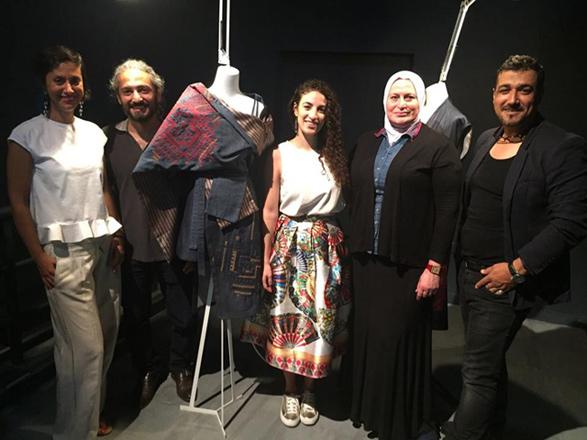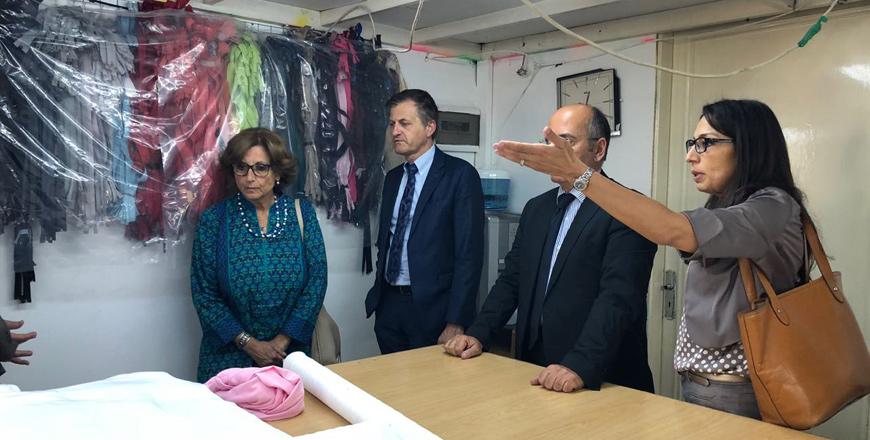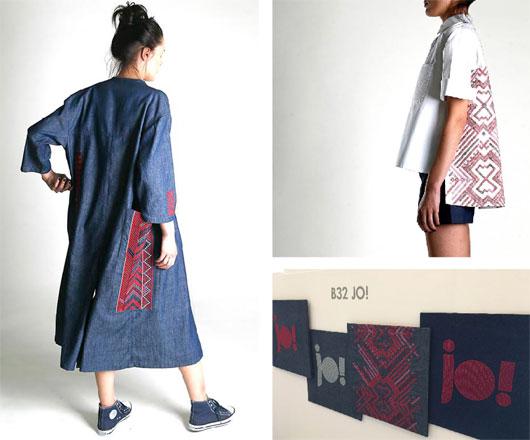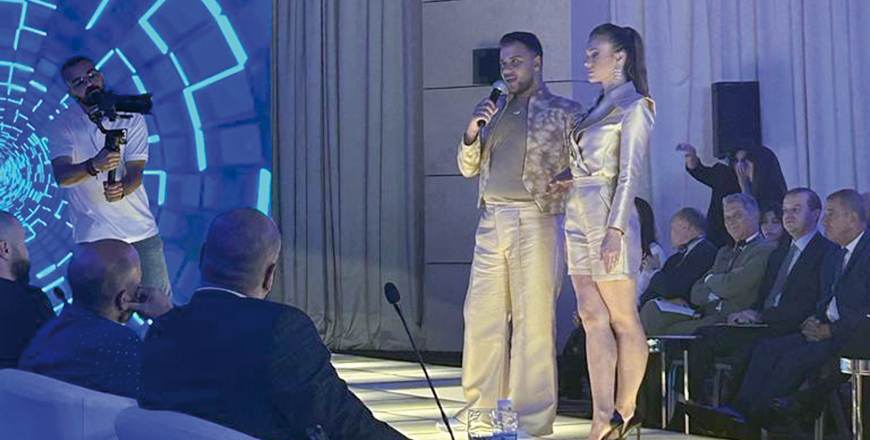You are here
Regional project revives local garment industry sector
By Camille Dupire - Apr 19,2018 - Last updated at Apr 19,2018

Designers from JO! by Creative Jordan benefitted from the EU funded project aimed at developing Amman Fashion Cluster (Photo courtesy of JO! by Creative Jordan Facebook page)
AMMAN — The UN Industrial Development Organisation (UNIDO) on Thursday organised a tour of Amman’s Garment Design and Training Services Centre to check on the achievements of the beneficiaries of the EU and Italy-funded project “Development of Clusters in Cultural and Creative Industries in the Southern Mediterranean”.
Upon arrival, the delegation was briefed on the centre’s progress and future plans by CEO Ameed Abdel Qader before proceeding to pop up shops at Abdali Boulevard.
Launched in February 2014, the project aims to develop clusters in selected creative and cultural industries (CCI) in seven countries across the region, including Jordan, Lebanon, Palestine, Egypt, Tunisia, Algeria and Morocco.
“In Jordan, the project started at the end of 2015 to support the development of the Amman Fashion Cluster, which included the introduction of the first ever industrial-based Jordanian fashion collection ‘JO!’,” said Sulafa Mdanat, UNIDO country representative, adding “entirely designed by a team of Jordanian women with the involvement of local suppliers fulfilling the whole supply chain requirements, JO! is the very first creative cluster in Jordan”.
“Through this project, UNIDO aims to developing this cluster to increase its output and competitiveness through a set of activities related to increasing the added value, quality and business capacities,” she told The Jordan Times.
JO! by Creative Jordan offers a modern reinterpretation of the bedouin traditional clothing, aimed at reviving the unique “diamond” Jordanian embroidery stitch which gradually disappeared throughout the years.
“Sophisticated and unexpected, these casual pieces offer a modern take on a long revered tradition,” said Dina Maqdah, adding “the bedouin world is our main source of inspiration, as we translated traditional drawings into asymmetric, unusual embroidery placements. We don’t want to copy existing models, but create contemporary pieces which are adapted to the international market, to help our culture survive and improve our living conditions”.
The brand also uses the traditional Indigo-Blue hand-dyed fabric to replace contemporary denim fabric, further emphasising local traditions in its creations. For Maqdah, the collection represents “the contrast of Amman”, where the old and the modern are juxtaposed in a fitting combination.
“We started the project with a team of UNIDO mapping experts, who interviewed over 500 persons throughout the seven participating countries, identifying over 140 clusters covering a wide array of industries, ranging from ceramics to textiles and handicrafts,” said Mdanat, stressing that “the high level of proposals received testifies to the great interest in developing CCI clusters in the region”.
“The targeted industries consist of SMEs operating for the local market, with low and occasional exports to neighbouring markets. They were then selected by a national steering committee formed in each country,” she continued.
Due to their classification within the low – medium quality category, their lack of professional capacities for industrial orientation and little or no connection to textile factories, these creators are facing high competition from cheaper imports, leaving them to operate on an individual basis, according to the UN official, who said that the beneficiaries underwent training in the training in the fields of creativity, added value, industry elvents, and business elements. following an action plan adopted by the national steering committee.
Commenting on the project, the designer Giulio Vinaccia, who coordinates activities for Creative Mediterranean, said: “We are not creating products, we create a system.”
The officials then proceeded to Abdali Boulevard, where they met with Jordanian textile designers who displayed some of their work and shared their personal experiences as beneficiaries of the project.
“The idea was to give young female designers the means to reconnect with their traditions, and in this way their heritage, and reinterpret that in contemporary models. Through the creation of their first collection, they have been able to reinvent themselves and regain their self-confidence,” Vinaccia said.
The Abdali pop-up shows will be replicated in various parts of Amman for the trained designers to showcase their products to the public, according to Mdanat.
The other 11 clusters included in the project encompass a jewellery and brass cluster in Algeria; a jewellery and a furniture cluster in Lebanon; a garment/fashion and a homeware cluster for Morocco; a Palestinian handicrafts and furniture cluster; and a kitchenware and a mosaic cluster for Tunisia.
The project, which comes at a total cost of 5.6 million Euros, is funded by the EU with a financial contribution from the Italian Cooperation. It is implemented by UNIDO and is expected to conclude by the end of this year, according to a UNIDO statement.
Related Articles
AMMAN — Italian and EU officials on Tuesday took part in a field visit to the Garment Design and Training Services Centre and the Noorway Fa
AMMAN — Launching Jordan’s fashion industry on to the international stage, “JO!” by Creative Jordan recently participated in fashion exhibit
AMMAN — The Khayt Fashion Design Competition-spring/summer collection on Wednesday shed light on young talents in the fashion industry.The c














